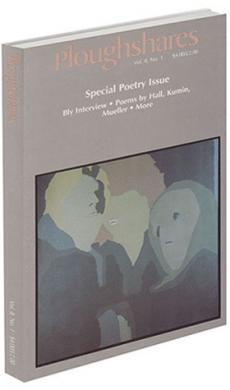rev. of From this Distance by Susan Snively
Susan Snively's poems share their predicament with Anne Sexton's. Considering Sexton's life and career, such a comparison can only be made with trepidation. But genuine similarities bring it to mind. Both are attracted to legends, myths, fairy tales (what Snively calls "Mysteries"). Both are interested in dreams, visions, the problems of illusion and reality (Snively writes often about art). Most of all, the poems of both are marked by an intense sexual drive and vulnerability.
Perhaps the latter is what makes Snively's love lyrics so oddly banal and stilted. It is difficult for her to find the appropriate tone or attitude. She tends to veer between statements of power, which cannot be true,
If I had not dreamed you, you would not
exist, nor would we have made love
at last with no pain & no judgments
& no apparent awareness of the time.
("Possession")
and statements of meekness, which ring equally false:
You are the gentlest man I know
and I know you only in your gentleness.
This is the singular fact that scares me
since the air around you is full of power. . . .
("Trying Not to Tell You Goodbye")
Snively seems to need some distance from her subject in order to produce her best poems. The many good poems in
From This Distance always occur when the poet is engaged with something beyond her own skin. She has a subtle eye, a sensitive ear, and quite striking intelligence. Her sense of form is everywhere in evidence. These are well-crafted poems, a phrase which sounds pejorative in this age of spontaneity, but is not meant to be. The poems are neither academic, nor self-conscious, nor old-fashioned; they are simply carefully written. When their quality becomes inferior, the problem is usually an emotional block of some kind and not inadequate skill.
Snively has no block and everything comes together in a series of dramatic monologues in the second half of her book. The poems on Freud and his patients, on English earthgoddess legends, and her poem on the Loch Ness monster ("The Surgeon's Photograph"), are all long, concretely achieved excursions into the unknowable. I quote from the voice of the surgeon:
. . .I am not being witty:
she was as graceful and mysterious
as naiads bathing in a crystal bay
or forest, lit by ardent
chiaroscuro:
watching her body reassume its darkness
I felt my own withdraw into itself,
while the grey clouds, announcing heavy weather,
sealed the grey water in a tense reflection,
as if the landscape clenched against the sky,
and the dark gate which let me into mystery
had closed behind me, leaving me outside.
In Snively's best work, we are not outside the mystery, but drawn very deeply in.

